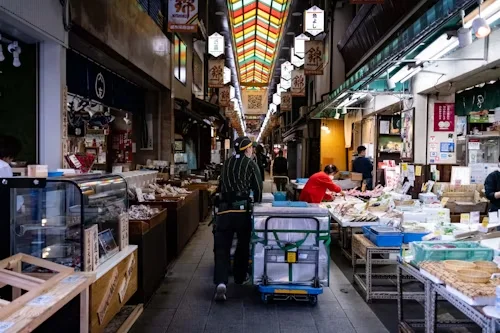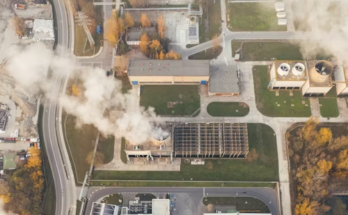Documentaries make an ideal medium for exploring sustainability topics, as they often present stories with tangible impact. From exploring our dependency on animals to showing how renewable energy can save the planet, these films cover everything from climate change to localized agriculture.

While some of these documentaries can be rather somber, they’re also motivating! Watch this to inspire you to be more eco-conscious in 2022!
“Before the Flood”
Leonardo DiCaprio, UN Messenger of Peace and actor, has put his star power behind this free-to-stream documentary on global climate change, which offers short- and long-term solutions. Though some complex topics (like giving up beef would dramatically decrease pollution) may be covered too quickly, few films provide such clarity of purpose, parsimony, and aesthetic unity; only Rare is a film like this available online today.
The film takes us beyond daily news reports to show us the scale of climate change: dead coral reefs, burning forests, and melting ice sheets. Watching it may leave viewers feeling dejected; its director and narrator, Josh Fox (best known for Gasland), has long championed environmental causes with outstanding passion, something he brings with him into this film as its narrative and director.
Anyone concerned about the future of our planet should watch this film, as it is one of the most hopeful about its problems. It takes an uncompromising, no-nonsense approach, showing that sustainability means not just carbon emissions reduction but creating better lives for billions in an equitable world. Furthermore, it illustrates ways individuals can help make a difference, such as by cutting down on palm oil purchases, driving less, supporting renewable energy companies, etc.
“Power to the People”
Though less science-focused than other eco-conscious films, this captivating documentary still manages to move viewers towards greater sustainability in daily life. Instead of engaging viewers through scientific didacticism, this documentary uses relatability as its focus to change habits in order to improve people’s quality of life.
Leonardo DiCaprio narrates and produces this comprehensive documentary on climate change, our efforts to transition away from fossil fuels, and renewable energy sources such as wind and solar power. Anyone wanting to learn more about how they can contribute to this fight should watch this.
Animal rights activists will find this documentary essential viewing. It details the cruelty and abuse seen at factory farms, pet stores, sports teams that utilize animals as performers, or entertainment venues that use them in entertainment events like sports. Joaquin Phoenix plays the lead role in this captivating story about our bond with animals as human companions, emphasizing the need to take action against the mistreatment of these priceless creatures.
As one of the leading natural history enthusiasts, broadcaster David Attenborough’s latest film serves as a poignant reminder of the dramatic decrease in biodiversity. Spanning from ghost cities such as Pripyat to Serengeti, this powerful documentary highlights human activity’s devastating effect on our environment while calling for immediate steps to stop the inevitable collapse of global ecosystems, making this one of the most compelling sustainability documentaries yet!
“2040”
Films depicting dire scenarios of the Corona pandemic, lockdown, and unrest have left us with a refreshing vision for a sustainable future. Filmmaker Damon Gameau presents a refreshing documentary in which he explores various climate change mitigation solutions, accompanied by his daughter Velvet, and imagines what life might look like if these solutions were implemented by 2040. He describes his approach as an exercise in fact-based dreaming.
Gameau unveiled many possibilities in his film Gameau Unleashed, ranging from revitalizing oceans to turning waste into bioluminescent flowers. Additionally, it explored how carbon taxes, regenerative agriculture, and greener vehicles can help cut pollution and waste while saving money—elements that families could discuss how best to incorporate into everyday life.
In this Netflix documentary, viewers learn how modern consumerism is impacting our planet. From counterfeit makeup production that thrives under influencer culture to flat-pack furniture companies focused on cost-cutting rather than safety standards, each episode highlights how consumer habits may contribute to environmental destruction.
Younger generations are taking the initiative when it comes to sustainability, following in Cesar Chavez and other farm worker activists’ footsteps and showing everyone’s impact on our environment. Families can use the series as an opportunity for dialogue on how compassion, communication, and curiosity are key ingredients in creating a brighter future.
“Seeding Change”
Investment in our local communities is one of the best ways to create a greener future, yet many organizations struggle to secure sufficient funding and support to make that vision a reality.
As part of their response, entrepreneurs have started businesses that are both sustainable and profitable—companies known as triple bottom line businesses—that consider the social, environmental, and financial impacts of their business model to address some of today’s toughest challenges, such as biodiversity conservation, combating climate change, or eliminating ocean plastic pollution.
Seeding Change is a nourishing circle for informed eaters, visionaries, seed keepers, and emerging food justice leaders who are working to build regenerative and sustainable food and seed systems in their own communities. Here, innovative tools, strategic leadership models, and an abundance of embodied experiences come together to support curious, engaged, receptive, and creative souls as they embark upon organizing and mentoring journeys.
The Biden Administration’s Clean Energy Plan includes $6.2 billion to expand green spaces that will improve community heat resiliency, air quality, and mental health, particularly among communities of color, which already bear higher temperatures and pollution burdens. Seeding Change is working with communities through events, educational opportunities, and civic engagement programs to build robust support for green space investments.
“The Future of Energy”
As days grow shorter and temperatures grow cooler, a warm drink and an eco-conscious documentary are the ideal ways to relax at home. Additionally, watching these documentaries provides invaluable knowledge of how we can all work toward creating a greener future and saving the planet.
This documentary is essential for anyone interested in understanding how energy production can become more sustainable. Eight Stanford researchers explore various options for moving away from fossil fuels; technologies like solar panels, wind turbines, batteries, and others will work in combination to reduce energy consumption and consumption costs.
The film also highlights the importance of policy and investments, as well as new industrial clusters, such as how the oil and gas, power utilities, and chemicals industries are coming together into integrated energy systems that create novel vectors of electrons and molecules.
This remarkable documentary offers a compelling narrative depicting the transition to renewable green energies through personal stories. Notable among them are insights from prominent renewable advocate Jeremy Rifkin; you can stream this film on Netflix.
This film documents a small California farm family’s trials and triumphs in regenerative farming. They raise pasture-raised meat, organic and biodynamic fruits and vegetables, and build communities. Witnessing individuals take charge of their environmental sustainability efforts is refreshing and inspiring.
“Catching the Sun”
This documentary provides an insightful look at workers and entrepreneurs at the forefront of a clean energy revolution. This documentary focuses on the growth of the solar power industry in New Zealand. Now streaming on Netflix New Zealand.
The film opens with an explosive blast at the Richmond, California, Chevron refinery, a result of outdated equipment that has been idle since Chevron assumed control. This incident highlights how fossil fuel extractors continue to make fortunes from extracting these fuels, leaving workers jobless, communities polluted, and our climate at risk.
Through interviews with these unemployed Americans, Van Jones, and other advocates of this movement, filmmaker Shalini Kantayya demonstrates how a green economy could emerge. Here, the film truly shines and stands apart from other environmental and social documentaries. Director Shalini Kantayya captures their hopes, struggles, and triumphs through interviews, while Van Jones himself promotes these ideals through direct interviews with him and others involved with them.
The film is an important contribution to climate change discussions, broadening and humanizing it for viewers while offering solutions that benefit all those involved in its transition. Furthermore, it disproves the notion that transitioning to renewables means giving up economic prosperity—something leaders should make clear through action-inducing statements like these. Finally, audiences may find encouragement here, which could inspire action to catalyze change within their community and local neighborhoods.



